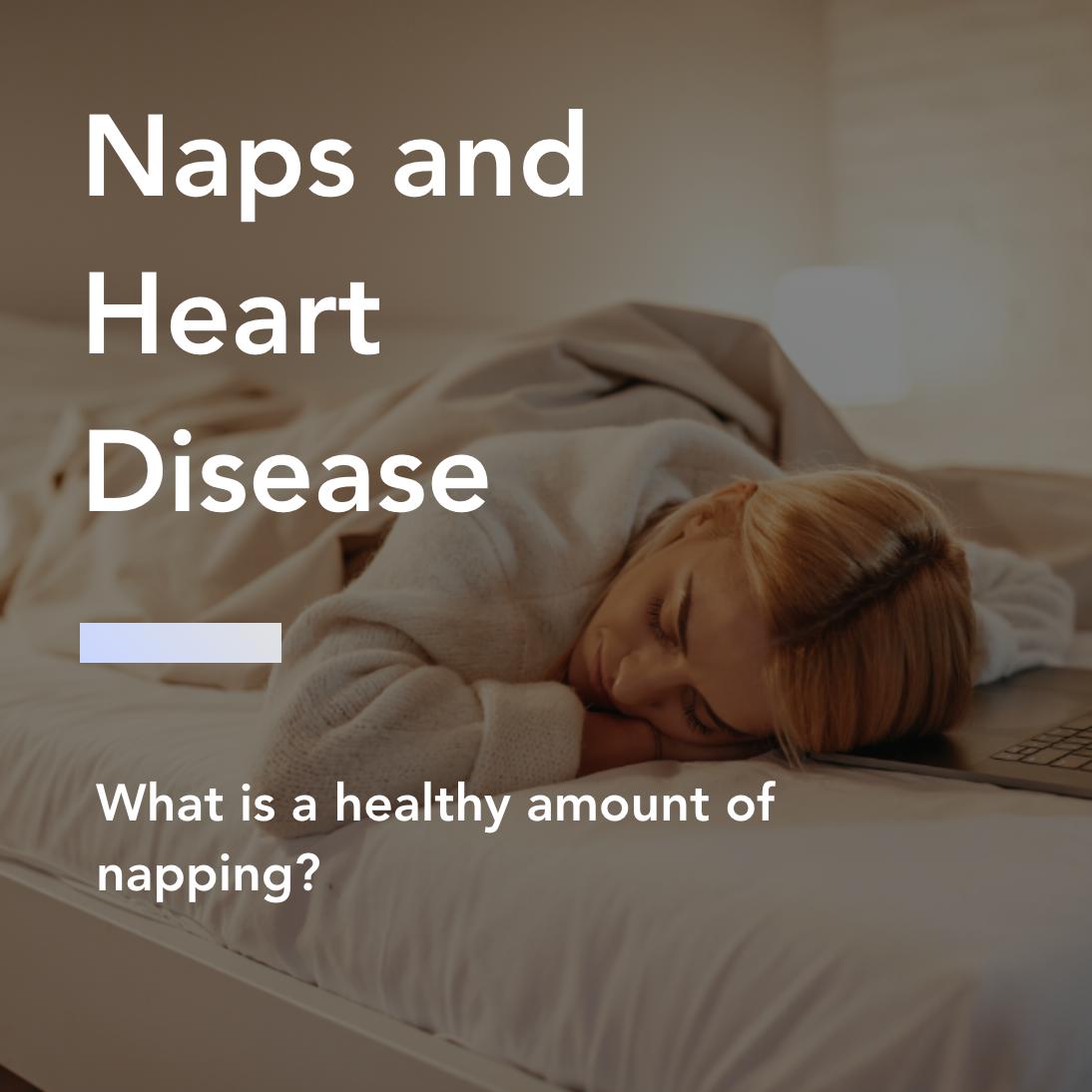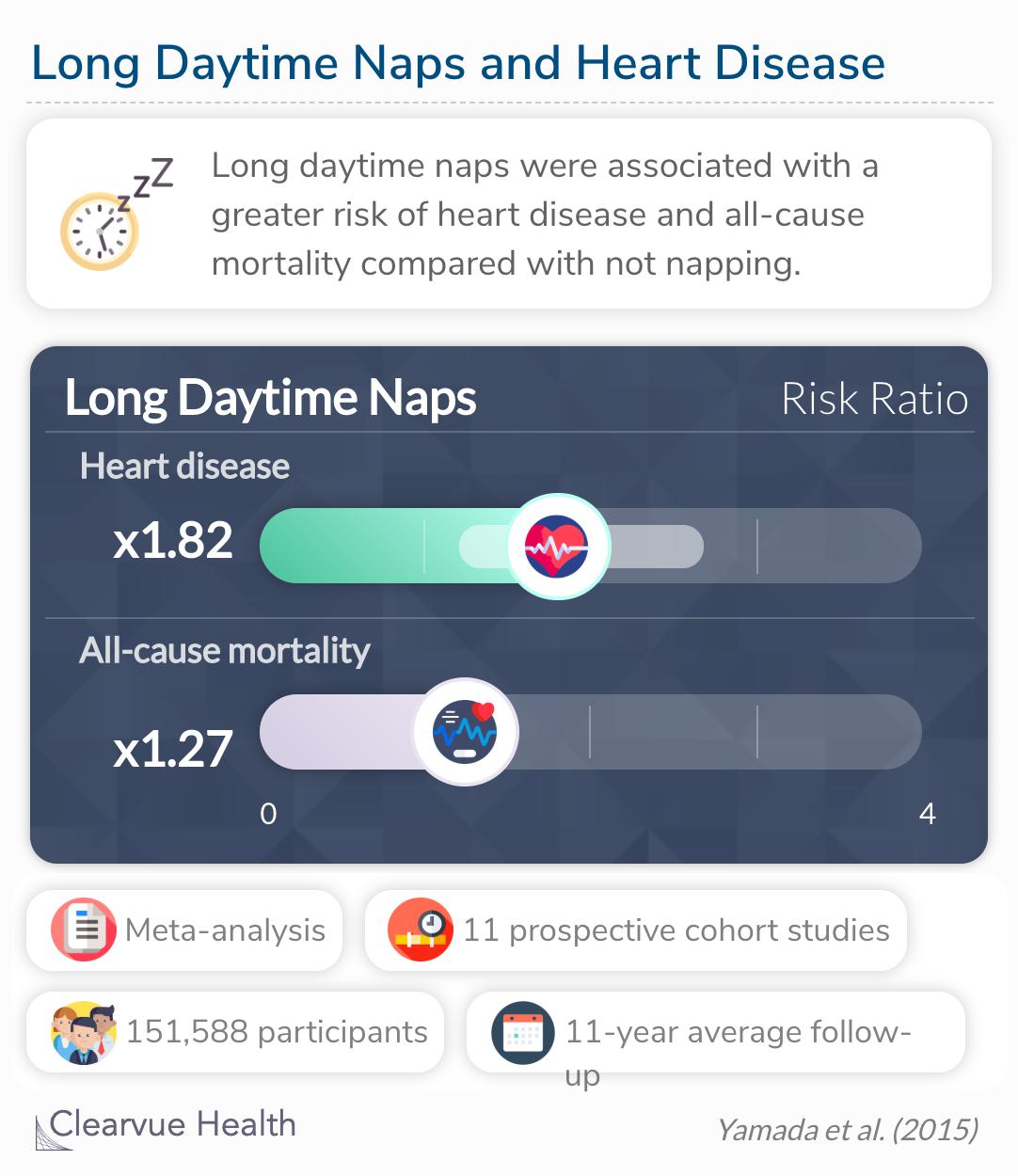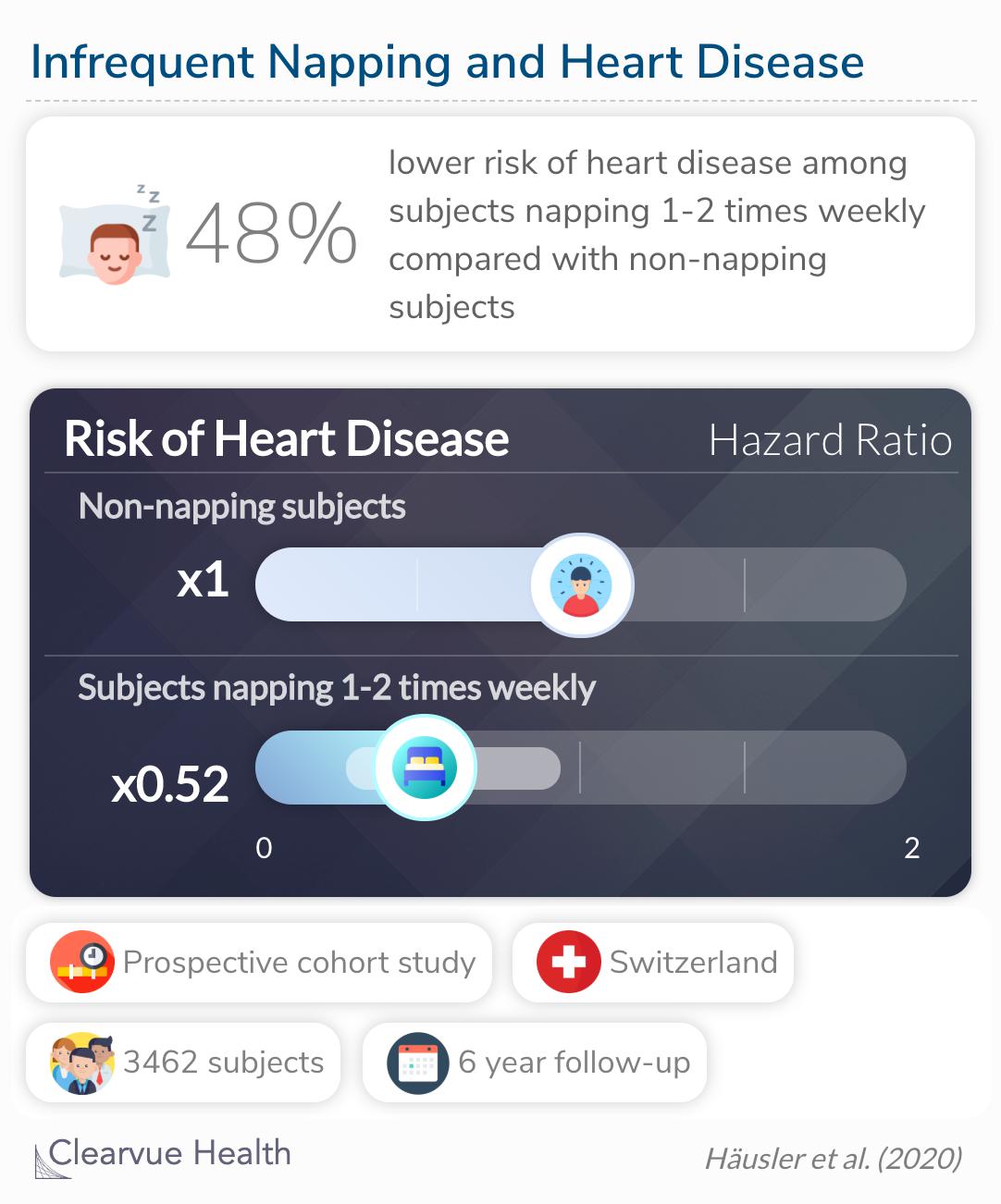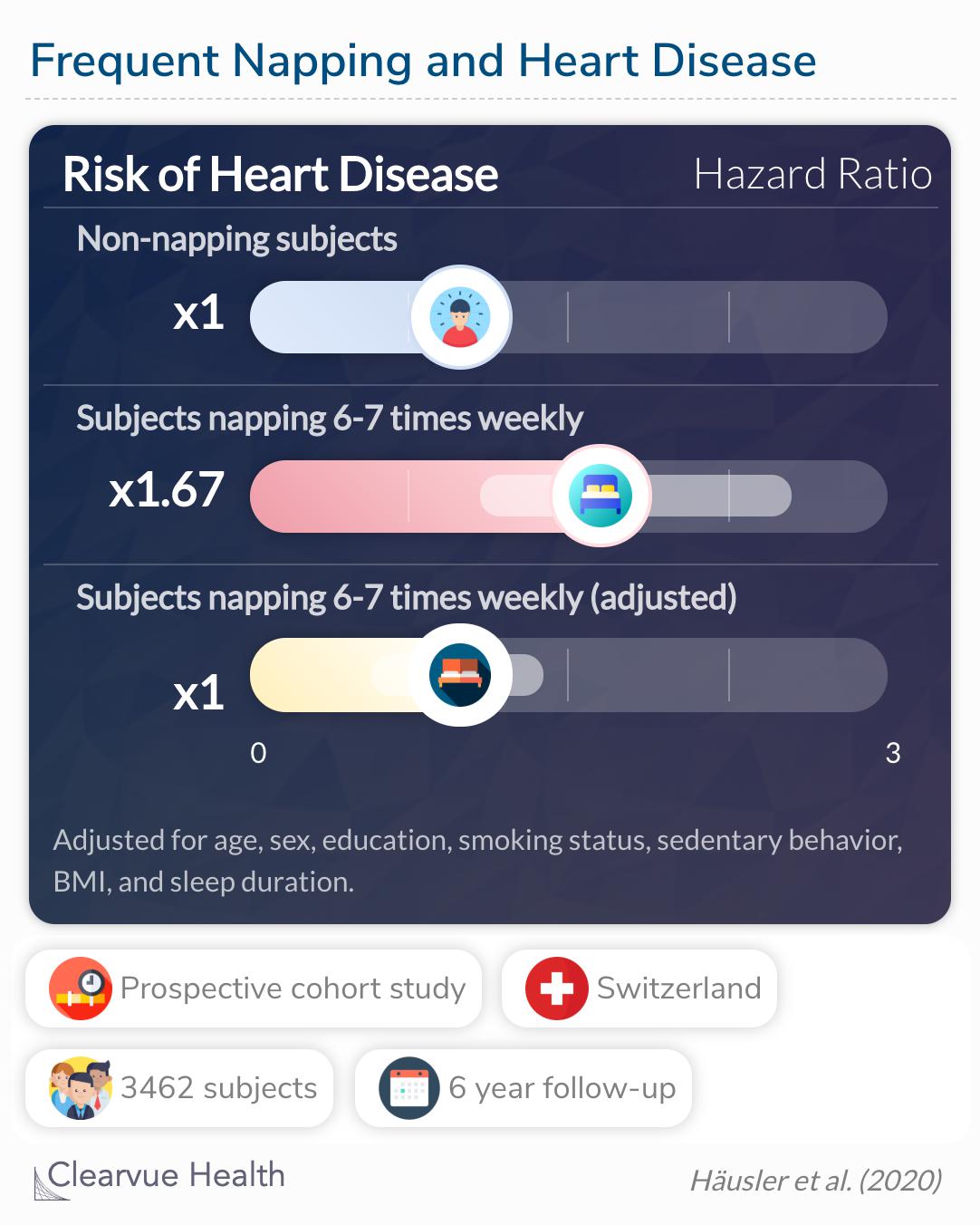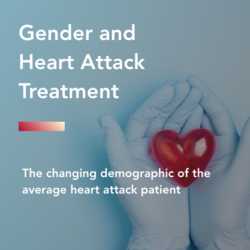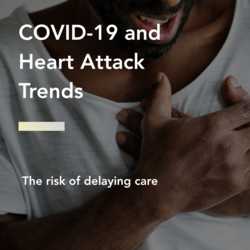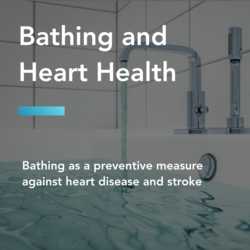naps and heart disease: what is a healthy amount of napping?
Sometimes, life makes it difficult for us to get our full 8 hours of sleep each night. Whether it is a crying baby or a hockey game that went into triple overtime, our sleep schedules are often cut short. To combat the tiredness of the following day, some people take naps. Naps can be a great way to recharge. However, research suggests that changes to a traditional sleep schedule may have poor health consequences.
Nap duration
A group of researchers searched databases for every study using the terms nap, cardiovascular disease, and all-cause mortality up until the end of 2014. They identified 11 studies and pooled the risk of heart disease between long naps (≥ 60 min/day), short naps (< 60 min/day), and no napping.
Pooled analysis showed that a long daytime nap (≥ 60 min/day) was associated with a higher risk of cardiovascular disease (rate ratio [RR]: 1.82 [1.22–2.71], P = 0.003, I2 = 37%) compared with not napping. All-cause mortality was associated with napping for ≥ 60 min/day (RR: 1.27 [1.11–1.45], P < 0.001, I2 = 0%) compared with not napping.
Source: Daytime Napping and the Risk of Cardiovascular Disease and All-Cause Mortality: A Prospective Study and Dose-Response Meta-Analysis
After pooling the results, the authors found that participants who napped for more than an hour at a time had an increased risk of heart disease and all-cause mortality. Participants who napped for less than an hour at a time had no difference in heart disease or mortality risk compared to participants who did not nap. They also saw a linear relationship between heart disease risk and long naps. In other words, the longer participants napped, the higher their risk of heart disease.
Notably, this study measured the length of naps, but not the frequency of napping. It is likely that a long nap every now and again does not have the same impact on your health as a long nap every day. A newer study published in BMJ added to the findings of the meta-analysis by considering the frequency of napping along with nap duration.
Nap frequency
In this study, researchers recruited subjects with no history of heart disease. For nearly 6 years, subjects reported their nap frequency and nap duration in any given week. This data was compared to medical records of all heart disease events.
Researchers observed a significantly lower risk for subjects napping 1–2 times weekly for developing a CVD event (HR 0.52, 95% CI 0.28 to 0.95) compared with non-napping subjects, in unadjusted as well as adjusted models.
Source: Association of napping with incident cardiovascular events in a prospective cohort study
These results were somewhat counterintuitive to the previous data. Researchers found that subjects napping 1-2 times weekly had a significantly lower risk of heart disease compared to non-napping subjects. This was the only statistically significant association after considering other factors such as age, sex, education, smoking status, and BMI. Initially, subjects napping 6-7 days a week had an increased risk of heart disease. However, other factors appeared to mediate the relationship and ultimately made the association insignificant. In other words, there was no statistical verification that napping almost every day increases the risk of heart disease.
The increased HR (1.67, 95% CI 1.10 to 2.55) for subjects napping 6–7 times weekly disappeared in adjusted models (HR 0.89, 95% CI 0.58 to 1.38).
Differing from the meta-analysis, this study found no significant difference between the risk of heart disease and nap duration. Like the studies above, they measured long naps as over an hour and short naps as less than an hour. The difference is not completely explained, but it could have something to do with the strength of the mediating factors and sample characteristics.
Final Thoughts
These studies have misaligned conclusions. We can only conclude that infrequent napping is associated with a reduced risk of heart disease, and napping for over an hour at a time is associated with an increased risk of heart disease. Other strong evidence has linked a variety of health conditions to the disruption of our circadian rhythm. For example, sleep disruptions are thought to cause weight gain, slower thinking, and slower healing. Each of these conditions has its own association with heart disease. There is no simple explanation for the association between naps and heart disease. However, this research can inform our overall understanding of the health implications.
